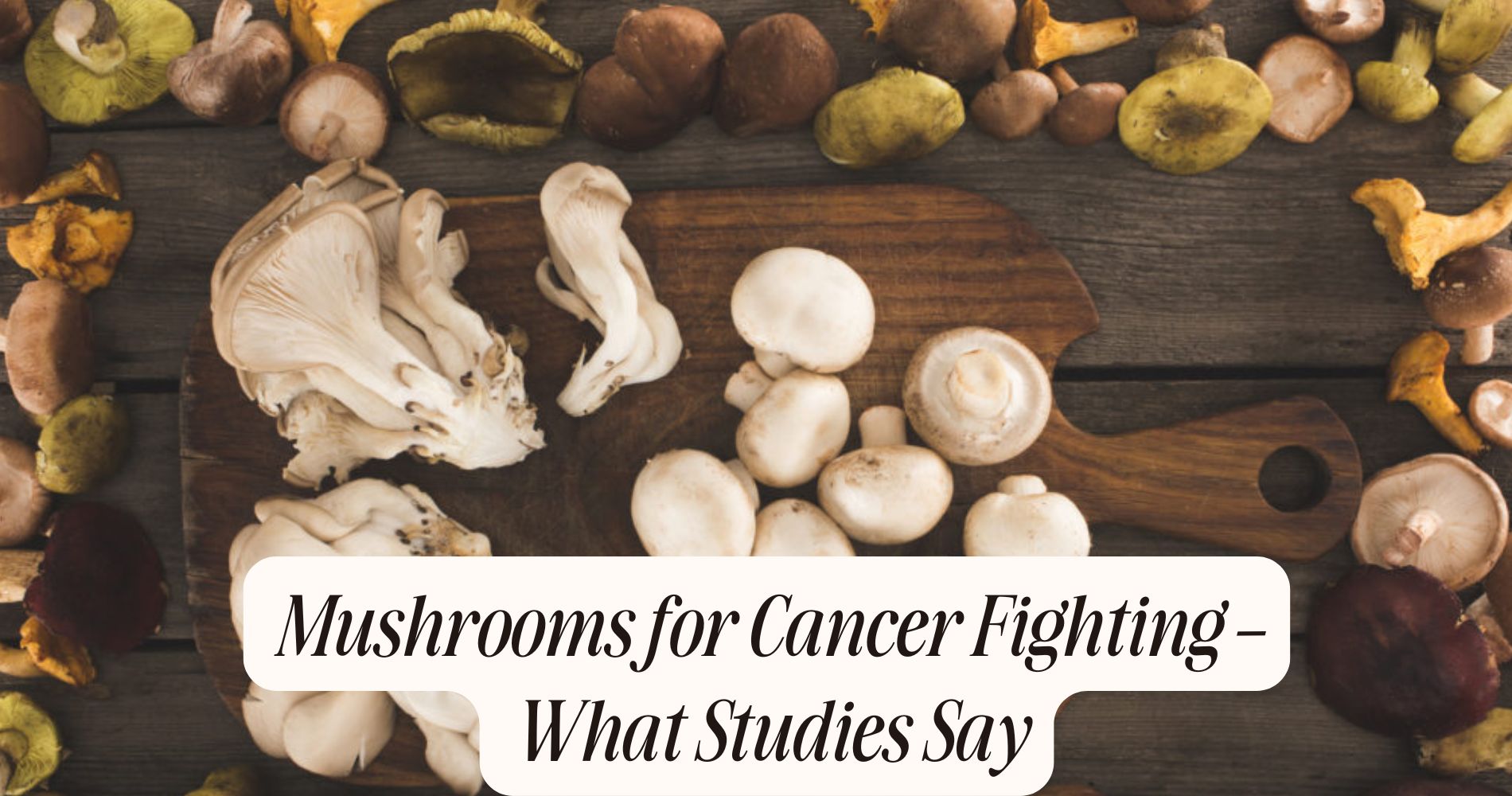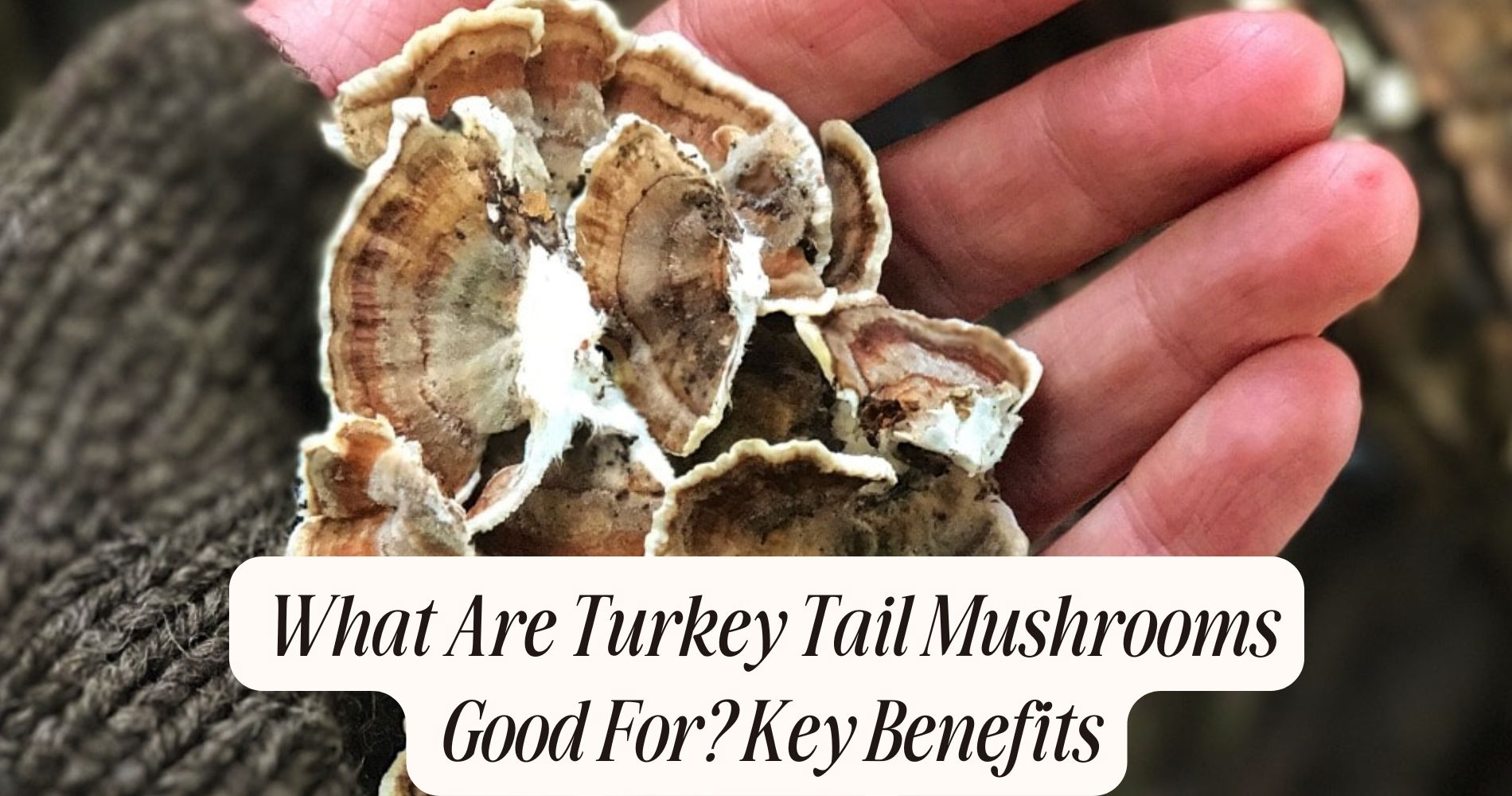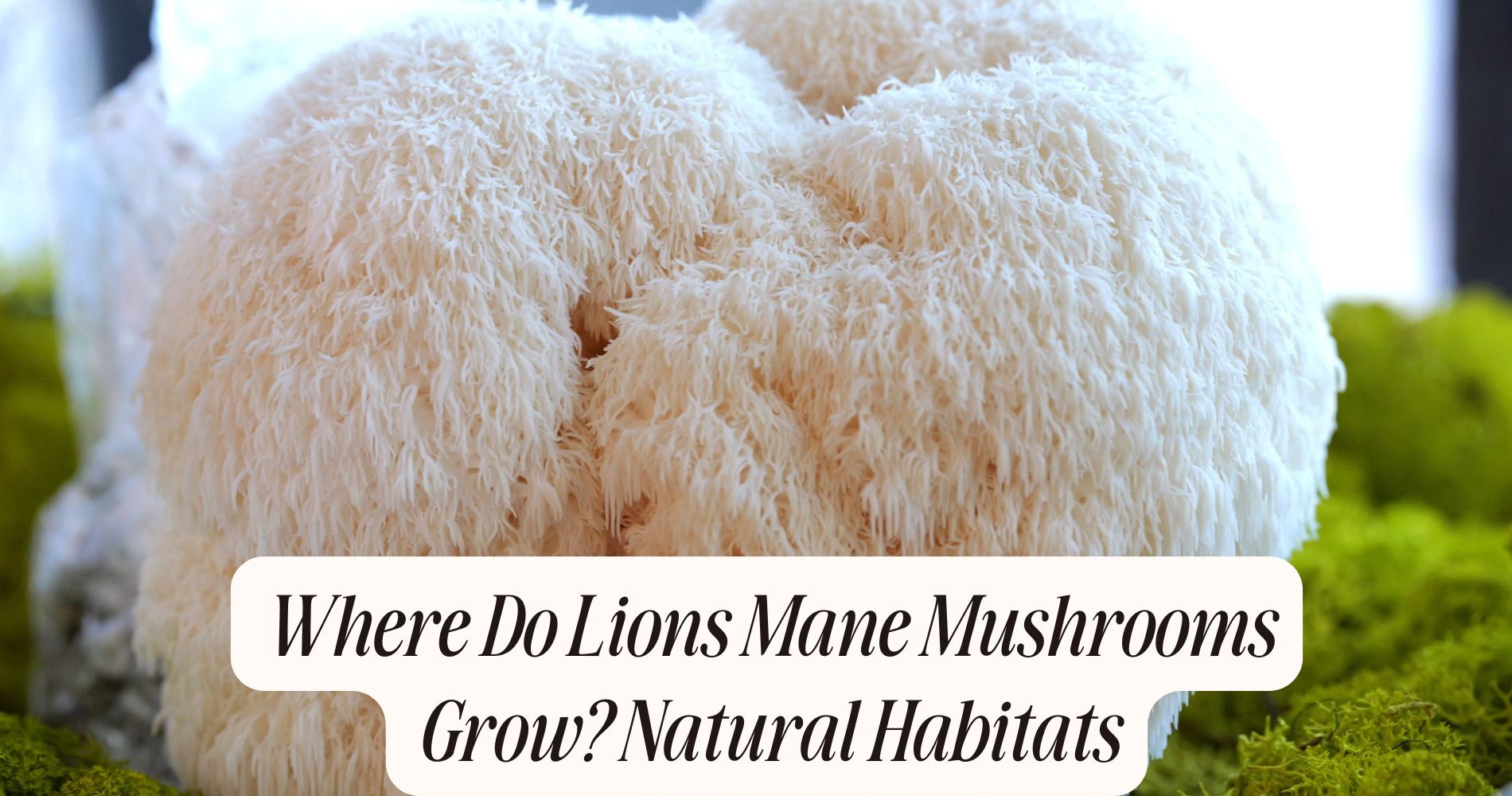
Mushrooms for Cancer Fighting – What Studies Say
Research into mushrooms for cancer fighting reveals that varieties like shiitake, reishi, maitake, and turkey tail contain powerful bioactive compounds—particularly beta-glucans and triterpenoids—that help modulate the immune response and inhibit tumor growth pathways. Clinical and animal studies have shown that these mushrooms can improve immune markers, reduce cancer cell proliferation, and even enhance the efficacy of chemotherapy when used as adjunct therapies. However, it's important to note that mushrooms do not replace standard medical treatments. Discover how specific compounds, dosing, and preparation methods can influence clinical outcomes and safety considerations in the following sections.
Understanding How Mushrooms Interact With Cancer Cells
Although mushrooms have long been used in traditional medicine, recent research reveals their bioactive compounds—such as beta-glucans, polysaccharides, and triterpenoids—can modulate cancer cell behavior at the molecular level.
When you examine mushroom cultivation, you’ll notice that controlled environments optimize the yield and concentration of these bioactives. Once isolated, these compounds interact with cancer cell mechanisms by inducing apoptosis, inhibiting angiogenesis, and modulating immune responses.
You’ll see that beta-glucans activate immune effector cells, enhancing the recognition and destruction of malignant cells. Polysaccharides interfere with cellular signaling pathways, disrupting cancer cell proliferation. Triterpenoids inhibit metastasis and promote cell cycle arrest.
Key Types of Mushrooms Studied for Anti-Cancer Effects
Building on the molecular mechanisms by which mushroom-derived compounds influence cancer cells, it’s important to examine which specific mushroom species have demonstrated significant anti-cancer properties in scientific studies.
You’ll find that Lentinula edodes (shiitake), Ganoderma lucidum (reishi), Grifola frondosa (maitake), and Trametes versicolor (turkey tail) are among the most extensively researched. These species, commonly used in mushroom cultivation and valued for their culinary uses, have shown promising results in preclinical and clinical investigations.

Controlled trials indicate that extracts from these mushrooms can modulate immune function, inhibit tumor proliferation, and enhance apoptosis in malignant cells.
Bioactive Compounds That Make a Difference
When you examine the anti-cancer potential of medicinal mushrooms, you’ll find that their efficacy hinges on a diverse array of bioactive compounds, principally polysaccharides such as beta-glucans, triterpenoids, lectins, and ergosterols. These molecules modulate immune responses, enhance cell-mediated cytotoxicity, and can inhibit tumor growth pathways.
During mushroom cultivation, factors like substrate composition and growth conditions directly influence the concentration and profile of these active agents. Precision in nutrient extraction is vital; advanced techniques like hot water or ethanol extraction maximize yield and preserve bioactivity.
Beta-glucans, for example, demonstrate immunomodulatory effects via Dectin-1 receptor interaction, while triterpenoids can suppress NF-κB signaling. By optimizing cultivation and extraction procedures, you guarantee that mushroom-derived compounds retain their clinical potency for anti-cancer applications.
Reviewing Human and Animal Research
Across both preclinical and clinical settings, robust research has evaluated the anti-cancer effects of medicinal mushrooms, particularly species like Ganoderma lucidum (Reishi), Lentinula edodes (Shiitake), and Trametes versicolor (Turkey Tail).

You'll find that animal models demonstrate these mushrooms can inhibit tumor growth, modulate immune responses, and enhance the efficacy of chemotherapeutic agents.
Human trials, although varied in quality, report improved immune markers and, in some cases, prolonged survival in cancer patients integrating mushroom extracts.
Advances in mushroom cultivation have standardized bioactive compound concentrations, improving reproducibility across studies.
While no mushroom replaces established cancer screening or treatment protocols, current evidence suggests a promising adjunctive role.
It's crucial to interpret these findings within the framework of rigorous clinical evaluation and ongoing research.
Practical Ways to Add Beneficial Mushrooms to Your Diet
Given the mounting evidence for the therapeutic potential of medicinal mushrooms in oncology, integrating these fungi into your diet becomes a practical consideration.
You can source mushrooms such as shiitake, maitake, and reishi through reputable mushroom cultivation operations, ensuring quality and contamination control.
Incorporate them into your daily meals—shiitake and maitake adapt well to stir-fries, soups, or as roasted additions to salads.
For reishi, which possesses a bitter profile, opt for decoctions or teas, as clinical studies often use extracts prepared in this fashion.
Powdered mushroom supplements can also be blended into smoothies or broths, maintaining bioactive polysaccharide content.
Limitations and Safety Considerations
Although medicinal mushrooms offer promising adjunctive benefits in oncology, their use isn’t without limitations or risks. It's important to be aware of potential risks, such as allergic reactions, hepatotoxicity, or unintended interactions with chemotherapeutic agents.
Clinical data on long-term safety remain limited, and product quality varies due to lack of standardization. Dosage guidelines haven’t been universally established, so you’ll often find inconsistent recommendations in the literature.

Always consult with your oncologist before integrating medicinal mushrooms into your cancer care regimen. Some mushrooms may also modulate cytochrome P450 enzymes, altering drug metabolism.
Immunocompromised patients face increased susceptibility to infections from contaminated products.
To conclude, while evidence supports certain benefits, you must weigh these against safety considerations and adhere to evidence-based, individualized guidance.
Enhance Your Wellness Journey: SUPER MUSHROOM GUMMIES
If you’re interested in mushrooms for cancer fighting and boosting your overall wellness, try Well Gummies' SUPER MUSHROOM GUMMIES. These convenient, chewable gummies combine the benefits of 10 functional mushrooms, known for their immune support and natural brain-boosting properties. Enjoy calmer energy, sharper focus, and balanced vitality without the hassle of preparing mushrooms. With a delicious wild berry flavor and no jitters or crash, they’re as satisfying as your favorite candy. Shine all day with Well Gummies!

Frequently Asked Questions
Can Mushrooms Interact With Conventional Cancer Medications?
You should know medicinal mushroom interactions with conventional cancer medications can occur, potentially altering drug metabolism or efficacy. Always discuss supplement safety concerns with your oncology team to minimize adverse events and guarantee ideal therapeutic outcomes.
Are Mushroom Supplements Regulated by the FDA?
You should know that mushroom supplement quality isn't overseen by the FDA approval process. The FDA doesn't regulate dietary supplements for efficacy or safety before market entry, so product potency and purity can vary, demanding careful source evaluation.
How Should Mushrooms Be Stored to Retain Their Benefits?
To maximize mushroom freshness and preserve bioactive compounds, you should implement storage techniques like refrigeration at 1-4°C in ventilated containers. Avoid moisture accumulation, since high humidity accelerates spoilage, reducing therapeutic efficacy and altering the biochemical profile of mushrooms.
Do Cooking Methods Affect Mushrooms’ Anti-Cancer Properties?
Cooking methods profoundly impact nutrient preservation in mushrooms. When you use gentle techniques like steaming or microwaving, you retain more bioactive compounds. High-heat processes such as frying or boiling can degrade polysaccharides and antioxidants, reducing potential anti-cancer efficacy.
Are There Any Groups Who Should Avoid Medicinal Mushrooms?
If you have compromised immune systems, such as transplant recipients, or known allergy concerns, you should avoid medicinal mushrooms. Evidence indicates potential immune support, but immunosuppressed individuals may experience adverse effects or hypersensitivity reactions; consult your healthcare provider.
Conclusion
When you incorporate certain mushrooms into your diet, you’re tapping into a range of bioactive compounds—like beta-glucans, polysaccharides, and triterpenoids—that demonstrate anti-cancer potential in preclinical and some human studies. While clinical evidence remains limited, emerging research suggests adjunctive benefits, especially alongside conventional therapies. Still, you shouldn’t replace standard treatments with mushrooms alone. Talk to your oncology team before introducing medicinal mushrooms, as interactions and contraindications may exist. Evidence continues to evolve, underscoring the need for further large-scale trials.



